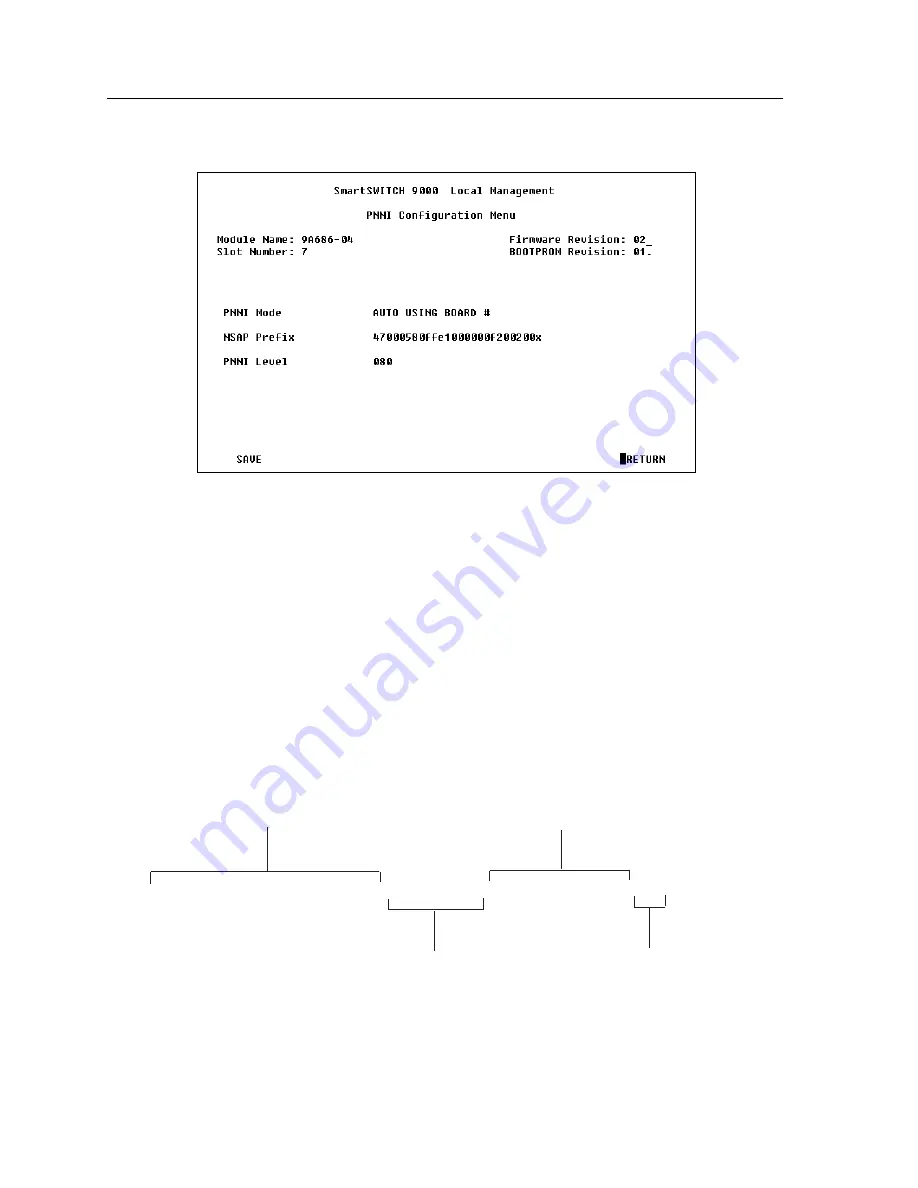
Chapter 2: System Configuration
2-28
9A656-04/9A686-04 Configuration Guide
Figure 2-14
The PNNI Configuration Screen
2.16.1 PNNI Configuration Screen Fields
The following section explains each of the PNNI Configuration screen fields:
PNNI Mode
Toggles between AUTO USING MAC, AUTO USING BOARD #, and MANUAL, with a
default setting of AUTO USING MAC. The three available options are defined as follows:
•
AUTO USING MAC -
In this mode, the PNNI Level field is defaulted to 72. This mode
allows the user to modify up to 9 bytes (72 bits) of the NSAP prefix. The next 4 bytes are
automatically set to the last 4 bytes of each 9A686-04 base MAC Address, followed by the
entire 6 byte base MAC address of the module, and 1 selector byte. Refer to
Figure 2-15
.
Figure 2-15
AUTO USING MAC Address Example
47-000000-000000-0000-1D123456-00001D123456-00
Modifable 72 Bits of NSAP Prefix
End System
Identifier (ESI)
Non-Modifiable Least
Significant 4 Bytes of
Base Mac
Address/ESI
Selector Byte
Summary of Contents for 9A656-04
Page 1: ...9032598 02 9A656 04 9A686 04 Configuration Guide ...
Page 2: ......
Page 8: ...Notice vi 9A656 04 9A686 04 Configuration Guide ...
Page 14: ...Contents xii 9A656 04 9A686 04 Configuration Guide ...
Page 118: ...Chapter 2 System Configuration 2 88 9A656 04 9A686 04 Configuration Guide ...
Page 172: ...Appendix C Supported MIBs Page C 10 9A656 04 9A686 04 Configuration Guide ...
















































